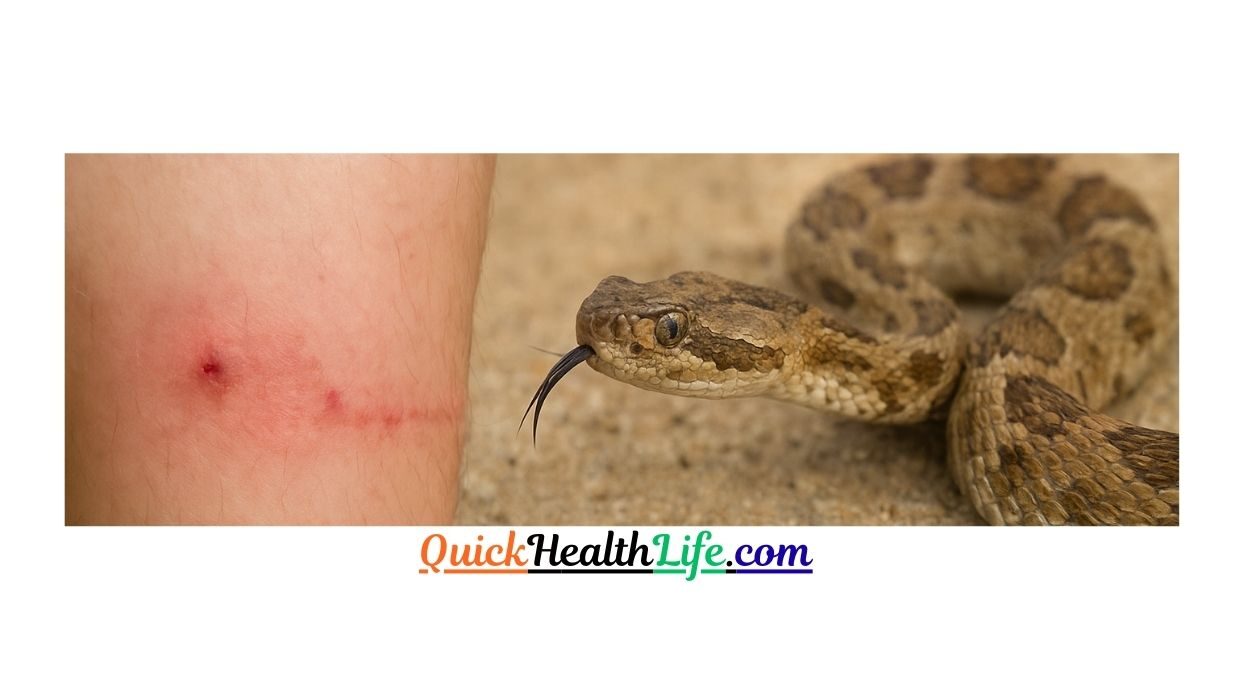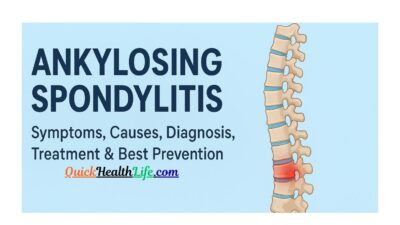Snake bites remain a serious medical emergency, especially in tropical countries like India. I will explain everything about snake bites, including symptoms, causes, first aid, treatment, and prevention, in simple and clear language.
A snake bite is an injury that happens when a snake sinks its teeth into your skin. Snakes bite for two main reasons:
- To hunt for food.
- To defend themselves when they feel scared or threatened.
Table of Contents
What Happens During a Snake Bite?
When a snake bites, it injects saliva or venom into the body. Venomous bites can damage tissues, affect blood clotting, and even stop breathing. Non-venomous bites are less dangerous but still need care to avoid infection.
Common Symptoms of Snake Bites
- Sudden pain and swelling at the bite site
- Redness or bruising around the wound
- Nausea, vomiting, or dizziness
- Sweating and anxiety
- Difficulty breathing or blurred vision in severe cases
- Weakness or paralysis in venomous bites
Major Causes of Snake Bites
Most bites occur when people accidentally step on or disturb snakes. Farmers, forest workers, and people living near rural areas face higher risks. Walking barefoot in fields, storing grain in open spaces, and sleeping on the floor also increase chances.
First Aid for Snake Bites
Quick first aid saves lives. Follow these steps:
- Keep the person calm and still.
- Remove tight clothing or jewelry near the bite.
- Keep the bite site lower than the heart.
- Do not cut, suck, or apply ice to the wound.
- Take the victim to the nearest hospital immediately.
Venomous vs Non-Venomous Snake Bites
- Venomous bites: Cause severe swelling, bleeding, breathing problems, and may be fatal without treatment.
- Non-venomous bites: Usually leave teeth marks, mild pain, and skin infection risk.
Snake Bites in India – The Big Four Snakes
In India, most deaths are caused by four venomous snakes:
- Indian Cobra
- Russell’s Viper
- Common Krait
- Saw-scaled Viper
Knowing these species is vital for awareness and prevention.
Treatment of Snake Bites
The main treatment is antivenom therapy. Doctors inject antivenom to neutralize toxins. Other treatments include oxygen support, fluids, and medicines for pain or infection. Patients need hospital care for several days, depending on severity.
Complications of Snake Bites
If untreated, snake bites can cause:
- Kidney failure
- Severe bleeding
- Tissue damage needing surgery
- Shock or death
Early treatment reduces risks greatly.
Snake Bite Prevention Tips
- Wear shoes while walking in fields or forests.
- Use a torchlight at night.
- Avoid sleeping on the floor.
- Do not play with or try to kill snakes.
- Keep your surroundings clean to reduce rodent population.
ICD-10 Code for Snake Bite
The ICD-10 code for snake bite is T63.0. This code is used by healthcare systems to record and classify snake bite cases.
Global Snake Bite Crisis
Snake bites represent a significant public health problem in many tropical and subtropical countries, particularly in:
- South Asia
- Southeast Asia
- Sub-Saharan Africa
- Latin America
The World Health Organization has classified snake bite envenoming as a highest priority neglected tropical disease, advocating for:
- Better access to antivenoms
- Improved medical training
- Community education programs
- Research into new treatments
FAQ: Snake Bite Emergencies
Q: How much time do I have after a venomous snake bite?
A: Most venomous bites are not immediately fatal. You typically have several hours to reach medical care, but should seek help immediately as symptoms can progress rapidly.
Q: Should I try to capture the snake for identification?
A: No, but if safe to do so, take a photo from a distance. Do not risk additional bites. Medical professionals can often identify the snake based on bite marks and symptoms.
Q: Are all snake bites venomous?
A: No, many snakes are non-venomous. However, all snake bites should be evaluated medically as even “dry bites” (no venom injected) can cause infections.
Q: How effective is antivenom?
A: Very effective when administered promptly. Modern antivenoms have significantly reduced snake bite fatalities when given within the first few hours.
Q: What’s the mortality rate for snake bites?
A: In the US, fewer than 10 people die annually from snake bites thanks to good medical care. Globally, estimates range from 81,000-138,000 deaths annually, primarily in rural areas of developing countries.
Q: Can I build immunity to snake venom?
A: No. While some animals have natural immunity, humans cannot develop immunity through exposure. Each bite can cause the same or worse reaction.
Q: How long does recovery take?
A: Recovery varies from days for minor bites to months for severe envenomation with tissue damage. Physical therapy may be needed for bites affecting muscles or nerves.



